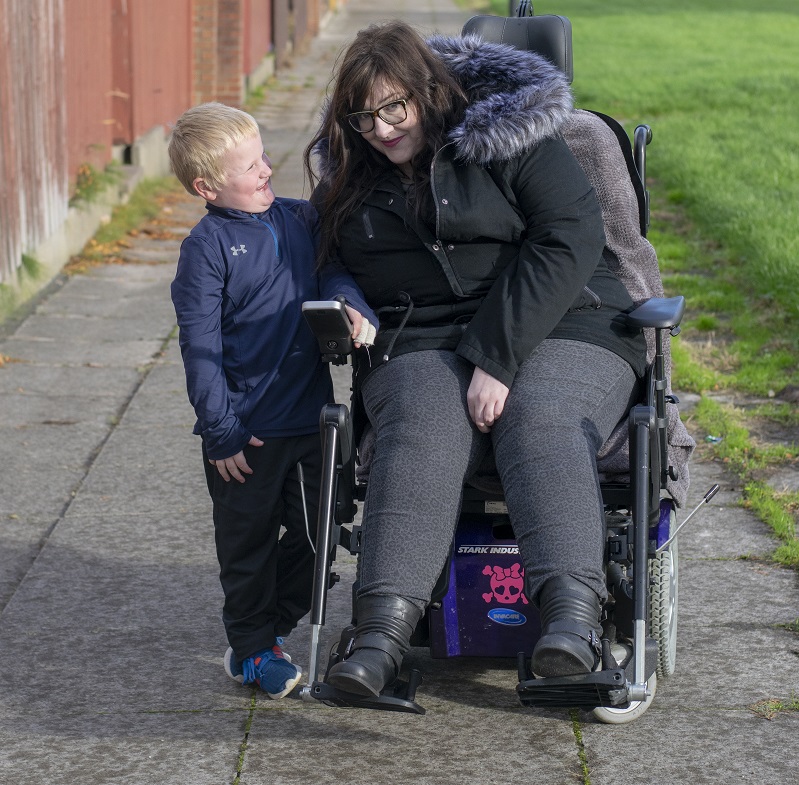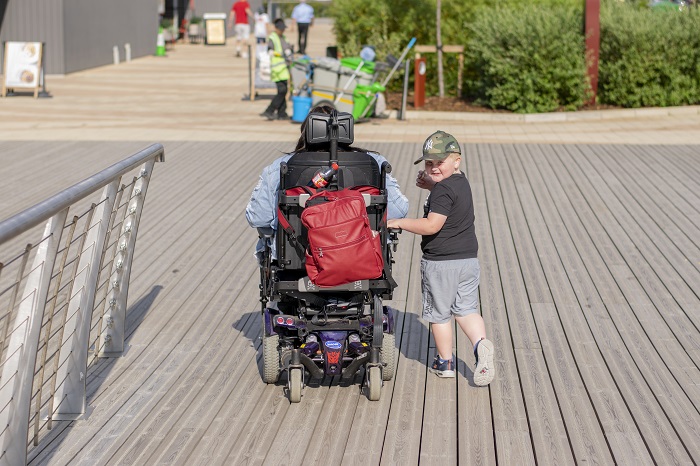Blogger and Motability Scheme customer Sarah Alexander, from Sarah Lex, writes about all things disability, beauty, fashion and lifestyle related. Sarah has multiple chronic conditions including Ehlers Danlos Syndrome; here, she explains why she’ll always answer children’s questions on disability.
Young children are inquisitive, they want to ask all the questions they can and then more, so when it comes to my disability I personally think it is important to respond to a child’s query about why I use a wheelchair, or can I drive a car? Of course, not everyone is going to be able to nor feel comfortable communicating personal information to a child, especially one that stops you in the street, but if you can, I believe it will lead to a more empathetic and understanding generation.
I have received questions from children I have never met before that have been pulled away by their parents when they are only innocently wondering what I use a wheelchair for. I appreciate the parent’s embarrassment, however, the best way to learn is to ask.
I feel that there is a difference between a child asking me about my disability and an adult because young children have no prejudice or malevolence in their queries, they are simply wanting information. I always view this as a teachable moment and if the parent allows me (before pulling their child away), I will always answer.
Children have no preconceived ideas unlike some adults. I find responding to children much more enjoyable than I do adults because the child will ask with no ill-intent whereas an adult should know better than to ask a stranger for their medical history. This, of course, does not apply to all adults, but I do find it really odd when a stranger asks ‘what’s wrong with you?’ in a judgemental tone. The amount of judgement I have received from adults as a young disabled adult has been vast and mostly incorrect. On more than one occasion I have had to explain to a stranger that my Blue Badge parking permit was mine and did not, in fact, belong to a grandparent.
“The best way to learn is to ask .”
Also, as my condition fluctuates on a day to day basis and having to use a variety of different mobility aids, it is often other adults that view me as unreliable. A lot of people seem to think that disability is linear and if I use a wheelchair one day, I should use it every day. However, I am an ambulatory wheelchair user, so not only do I require a powered wheelchair, but on other days I depend on a walking frame, or crutches, and on really good days, I rely on no aids to get around my bungalow.
This can be difficult for some adults to overcome, especially if they have been conditioned to view disability static. Conversely, young children are the opposite. I remember the conversation I had with my nephew when he was four years old about my conditions and how it changes depending on the day and my symptoms. I explained that I always experience pain but some days are easier than others and I may require a bit more help. He nodded and said ‘okay’, and we continued playing. My nephew is now seven, an excellent help to me, very understanding and empathetic.
I have spoken to inquisitive children at parks, on trains, whilst shopping, about my disability and hopefully shown them that it’s okay to ask and that disabled people should not be othered. I believe that pulling your child away from a situation with a disabled person (who seems willing to talk) only amplifies the taboo that disabled people are different.
In no way am I reeling off my medical history and bombarding the child with medical terminology as that isn’t helpful. I usually just explain that I have a few conditions and it means my joints get really sore and I need help from my wheelchair or other mobility devices. To me it’s important to tell them that I use different mobility aids because then they know disability isn’t fixed. That is often enough information for a kid and not only have they learnt something about my use of a wheelchair but they also learn that it’s okay to speak to disabled people like they would anyone else.
Read more from Sarah at www.fromsarahlex.com
Related Articles
Being young, disabled and getting back my independence
My journey: Driving with Multiple Sclerosis
![]()










